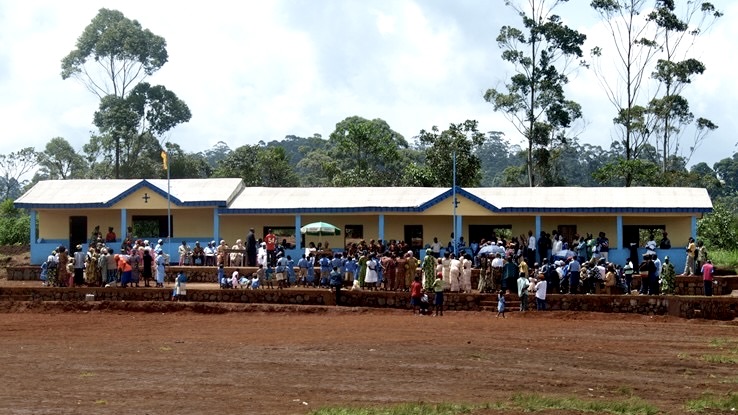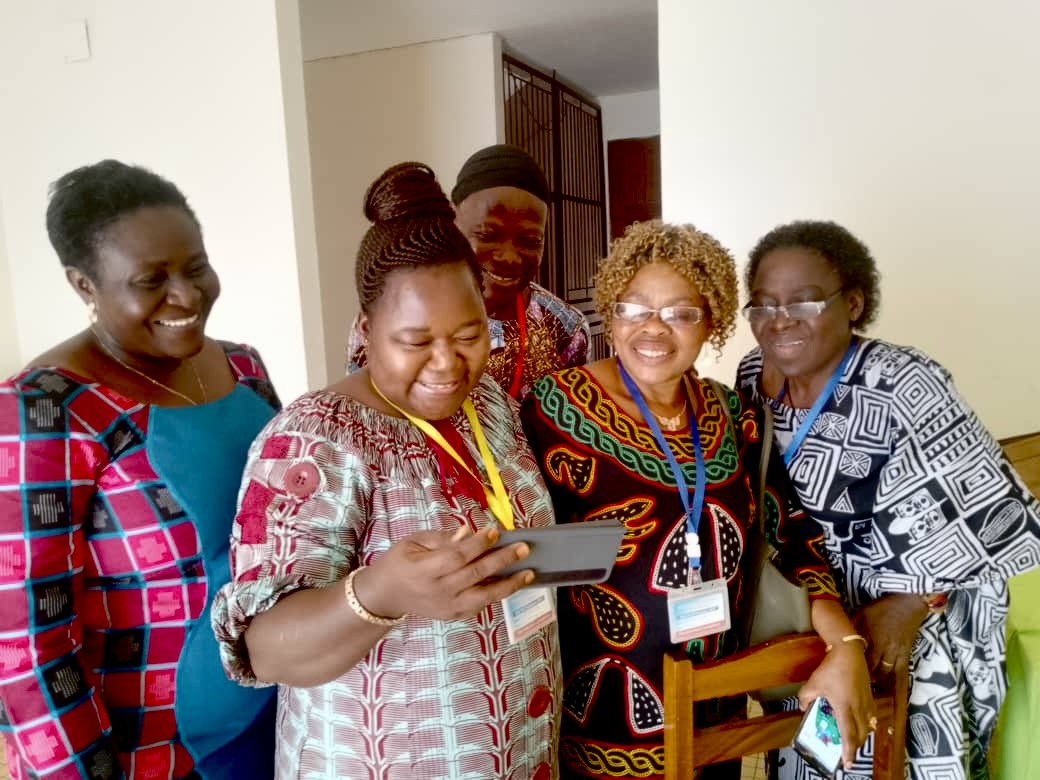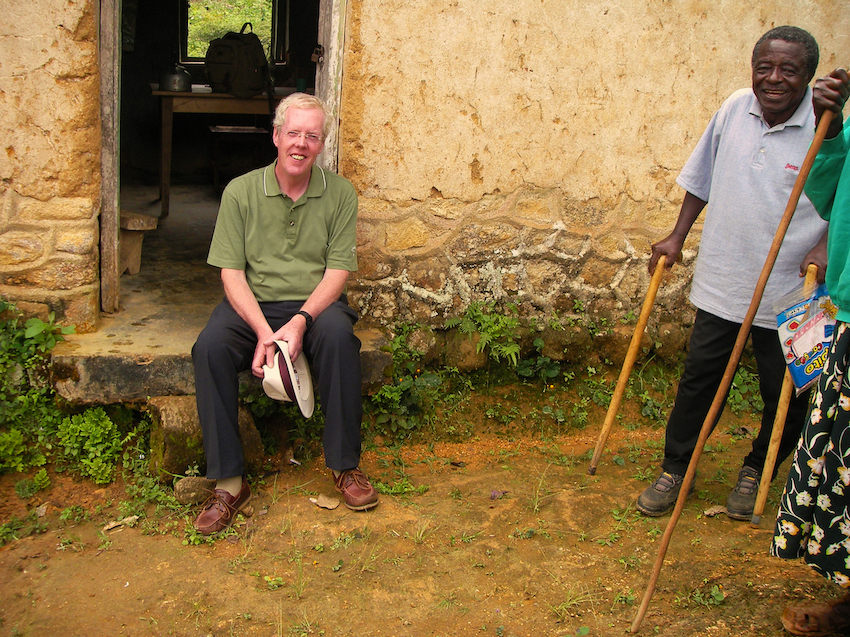Everything passes away. Only love remains.

In 2008, through a mixture of begging and blackmail, I managed to raise some money to build some primary schools in the Bangwa country in Cameroon, West Africa where I had been living for some years. Over the course of the dry season, from the November through to April when the rains had come, five new schools rose quickly to the delight of the children and parents in various villages. Four of the schools were replacements for old buildings made of sun-dried mud blocks and which were tumbling down and leaking. For years they had endured the annual three metres of rain and the April hurricanes which would sometimes blow the roof off. The new schools had cement floors and walls, solid roofs and were painted in bright colours.
There were grand openings and celebrations with food, drink, lengthy speeches and traditional dancing. At one event I was even crowned as a chief with the title FuaNdem Nchoh’alah. My ‘throne’ was placed in the royal palace and whenever the King convened a meeting of all the chiefs and nobles of the country, one of the members of my ‘cabinet’ would sit on my throne and speak in my name. This was extraordinary gift from the people.
It was a wonderful time. The schools would greatly benefit the lives of these children and their families. The community could use them for getting together and there was a great sense of pride in having such beautiful buildings in their village hidden away in the depth of the forest. One of the constant Bangwa mantras was the word “development” – or as it is said in Pidgin English “go before”.
While the aim of building these schools was to help the children and it was done out of love for them and for God, there was a part of me that felt a certain pride, that I had achieved something significant. As Catholic priests do not have children (or are not supposed to!), they either write books or build things to leave some sign of themselves which will remain after they have left this world. Whenever I would pass one of these schools, I would smile but I would also have an uneasy feeling that perhaps there was a part of me which had built them for myself.
In 1962 the English-speaking part of Cameroon, within which the Bangwa country is located, joined the former French colony, newly designated as the Republic of Cameroon. The northern part of the British Cameroons decided to be part of Nigeria. Since that time, anglophones have always felt that the principally francophone government had ignored them and their needs despite being the part of the country which was oil-producing. In 2016 the government decreed that the country should effectively no longer be bilingual. French was to be the official language of the courts, the administration and universities. Protests in the anglophone region ensued. The army were sent in and ruthlessly put down all signs of resistance. At that point separatist rebels armed themselves and began a guerrilla campaign, attacking the government forces and hiding out in the rainforest.
The conflict is still ongoing. Thousands have died. Three-quarters of a million people have fled the English-speaking region to other parts of the country. Almost eighty thousand have escaped to Nigeria.
The civil war has had a devastating impact on the Bangwa country. The rebels use the area to conceal themselves in the thick forest and fierce battles with the army take place regularly. As it is so dangerous, almost everyone has left – men, women and children. Only the old remain.
All the houses lie empty. Many were set ablaze by the army. The schools have all closed and the elephant grass and creepers have taken over. Only the hospital has stayed open but without any doctors. Mary, Health of Africa Hospital was one of the best medical facilities in the country and was run by the Focolare Movement as part of the Catholic Mission. Several members of the Movement have remained so that the sick and elderly would not be totally abandoned. The large parish church, the site of so many happy memories, of great faith and celebrations, is silent and vacant, increasingly being taken over by the forest.
The people have all gone. All gone. Gone to Dschang, Bafoussam and other towns on the ‘French side’ where there are tar roads and electricity and safety, their children now speak French. They will not return to the forest.
As part of her role within the Focolare Movement, my sister, Noreen, has been visiting the Focolare communities in West and Central Africa over the past few weeks. Last week she arrived in Cameroon to give a retreat to some of the members of the movement. Among them was a group of Bangwa men and women. A few days ago, Noreen arranged a WhatsApp video call between them and me.

It was very moving. We spoke in Ngwe, the Bangwa language. Joked in Pidgin. Told stories about the past. Caught up on what we have all been living these last few years. Tasong has not changed at all, a solid, reliable and generous man. Esther and Rosaline are now grandmothers. They stayed behind to run the hospital and care for the sick. Sophie is as sweet and gentle as she was as a teenager. Their children are all doing well – living in Cameroon and the USA. Angela is no longer the little girl who once showed me the path through the hills. She is, as we say in Africa, looking very healthy. She lives in the Focolare community in the Central African Republic. Rick and Maria married! Two children later and they still seem to be clearly in love.
At one point, in a moment of sudden stillness, I realised with a deep certainty that I love these people and they love me. Not only that, but the love is as strong now as when I left Cameroon, perhaps even stronger because of what we have lived through in our lives since we last met.
Everything passes, even crumbles, but love remains, endures and continues in the world even long after we have gone.
